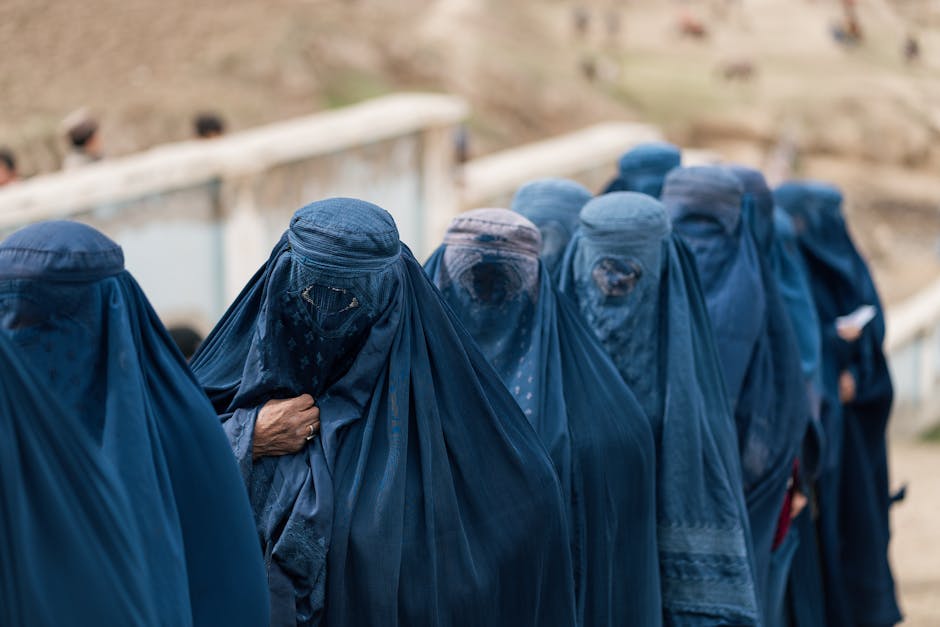Nationwide Internet Blackout in Afghanistan: Taliban Faces Global Condemnation

The Taliban’s recent nationwide telecommunications blackout in Afghanistan has drawn severe criticism from international human rights organizations and has far-reaching consequences for the country’s citizens. The blackout, which extended through September, has disrupted access to essential services such as healthcare, education, commerce, and media, effectively isolating Afghanistan from the rest of the world. This digital lockdown has plunged the nation into further social and economic despair, exacerbating the challenges faced by an already vulnerable population.
Widespread Disruption Across Afghan Society

Pexels
The telecommunications shutdown began mid-September in northern provinces, with Taliban officials citing the prevention of “immoral behavior” as their justification. By the end of the month, the blackout had escalated, culminating in Kabul on September 29th, as both fiber-optic and mobile internet services were disconnected. By September 30th, the nation was completely offline, as confirmed by Proton VPN, marking one of the most comprehensive internet blackouts in recent history. Not only did this halt vital communication services, but it also affected fundamental aspects of daily life, stalling businesses, education systems, and even flights at Kabul’s international airport.
The shutdown has had devastating effects on education, particularly for Afghan women and girls who had already been barred from attending secondary schools and universities under Taliban rule. Online classes had become a critical lifeline for continuing their education, but the blackout shut the door on even this alternative. Many students were unable to access online learning platforms, and the marginalization of women deepened, further eroding their right to education, information, and opportunities for employment.
Humanitarian and Economic Ramifications

Pexels
Beyond education, the telecoms blackout has created a substantial humanitarian crisis. Aid organizations, which heavily depend on internet connectivity for coordination and outreach, have reported severe obstacles in delivering critical aid to Afghan communities. The United Nations’ humanitarian coordinator in Afghanistan, Indrika Ratwatte, emphasized the compounded effects of the situation, stating, “This is another crisis on top of the existing crises, and the impact is going to be on the lives of Afghan people.”
The economic implications of the blackout are equally grave, as businesses across the country have been paralyzed, further destabilizing Afghanistan’s fragile economy. Local media reports highlight that the broader impact includes halted trade and the inability of small enterprises to operate effectively. With no connectivity, even basic international transactions and communications are rendered impossible, isolating Afghan business owners from vital avenues of income and growth.
Global Condemnation and Calls to End the Blackout

Pexels
Human rights organizations have strongly condemned the Taliban’s actions, describing the internet shutdown as a severe infringement on communication and fundamental freedoms. Fereshta Abbasi, a researcher at Human Rights Watch, stated, “The Taliban’s moves to cut internet access harms the livelihoods of millions of Afghans and deprives them of their basic rights to education, healthcare, and access to information.” Advocates have urged the Taliban to immediately cease these restrictions, highlighting that the costs of such measures extend far beyond digital isolation, as they significantly erode trust, safety, and community support.
International bodies such as the United Nations Human Rights Council (UNHRC) and the Office of the UN High Commissioner for Human Rights (OHCHR) have consistently advocated against internet blackouts, emphasizing that access to the internet is a fundamental enabler of human rights. Previously, reports from these organizations have detailed the far-reaching impact of such disruptions on political expression, health, and safety, while amplifying pre-existing societal inequalities. For Afghanistan, this blackout represents yet another regression under Taliban leadership, further isolating its citizens from vital international resources and assistance.
The situation in Afghanistan highlights the critical role of internet connectivity in modern society, not just as a tool for communication but as a lifeline to education, commerce, and humanitarian aid. The global community must continue to pressure the Taliban to reverse this damaging policy for the sake of millions of affected individuals who deserve access to fundamental human rights.







